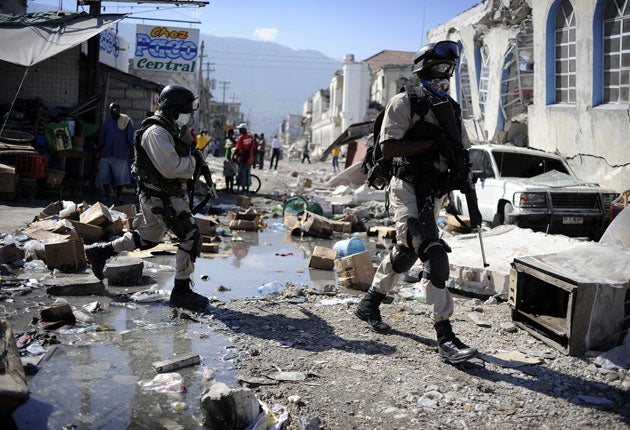Your support helps us to tell the story
From reproductive rights to climate change to Big Tech, The Independent is on the ground when the story is developing. Whether it's investigating the financials of Elon Musk's pro-Trump PAC or producing our latest documentary, 'The A Word', which shines a light on the American women fighting for reproductive rights, we know how important it is to parse out the facts from the messaging.
At such a critical moment in US history, we need reporters on the ground. Your donation allows us to keep sending journalists to speak to both sides of the story.
The Independent is trusted by Americans across the entire political spectrum. And unlike many other quality news outlets, we choose not to lock Americans out of our reporting and analysis with paywalls. We believe quality journalism should be available to everyone, paid for by those who can afford it.
Your support makes all the difference.The United Nations has launched an investigation into what it calls "major human-rights violations" at an overcrowded jail in Haiti, after claims that police shot dozens of prisoners during the chaotic days after the country's earthquake in January.
Between 12 and 19 inmates were killed, and roughly 40 wounded, when armed officers stormed the jail in Les Cayes, Haiti's third-largest city, a week after the disaster, to try to quell a riot. Most of the victims either had their hands raised or were lying on the floor to surrender, several witnesses said. The incident went largely unreported, in the upheaval that followed the 12 January quake, which killed between 230,000 and 300,000 Haitians, mostly in the capital city of Port-au-Prince. But the UN decided to open an inquiry on 12 May amid growing suggestions that the men killed there had been unarmed.
"As far as we're concerned there was a major human rights violation in that prison," UN spokesman David Wimhurst said yesterday, adding that "incomplete and inaccurate" official statements suggest a possible attempt to cover up what had happened. "We've waited and waited for the Haitian government to do its thing and now we're going to do our thing," he said. "We're not here to undermine them, but nor are we here to turn a blind eye to gross human-rights violations."
An investigation by The New York Times, which interviewed several witnesses, claimed that the riot started at Les Cayes prison when some of its 467 inmates, who were in severely overcrowded cells and terrified of aftershocks, tried to escape.
Police and UN peacekeepers from Senegal surrounded the compound, which had not been damaged by the quake, and appeared to have the situation under control. But at some point, the Haitian police officers decided to rush into the prison compound and open fire. Onlookers said they first threw 30 tear-gas canisters, and then began shooting inmates, many of whom had not been involved in the initial escape effort. Some victims were still locked in their cells when they were killed.
"They shouted, 'Prisoners, lie down. Lie down. Lie down'," Kesnel Jeu, a recently released inmate, told the newspaper. "When the prisoners lay down they began firing." Some of the police shootings involved some settling of scores, he added. "There were people they selected to kill."
Many of the inmates at Les Cayes had been locked up for relatively minor offences such as drug possession or shoplifting. Others were yet to be convicted of any offence, and were instead being held on remand. Police had claimed that violent inmates had taken three female prison cooks hostage and were threatening to kill them.

Join our commenting forum
Join thought-provoking conversations, follow other Independent readers and see their replies
Comments